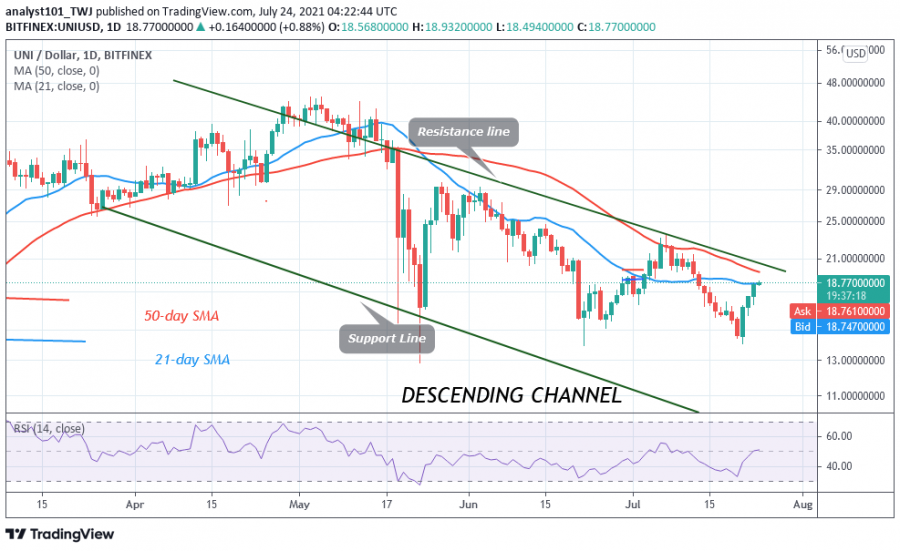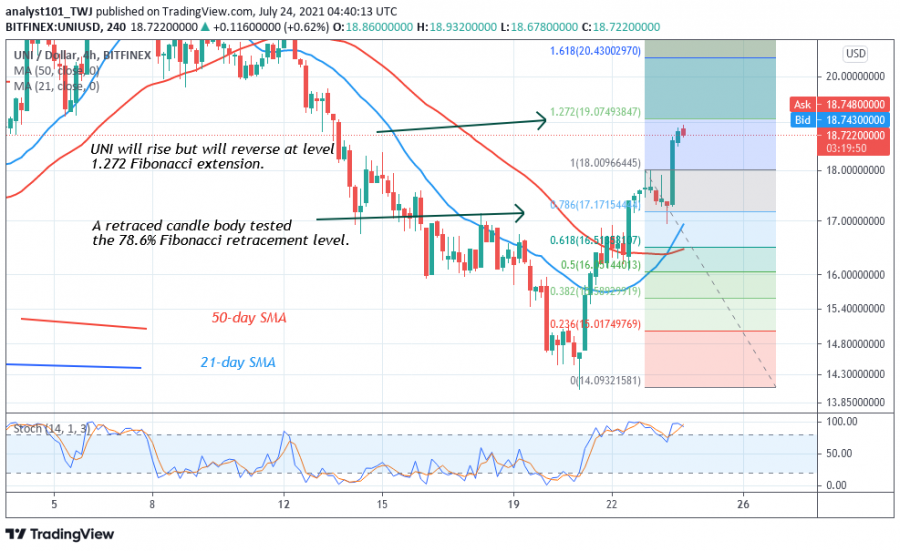Uniswap in a Brief Rally, Faces Rejection at $19 High

Uniswap's share price (UNI) is bouncing higher after retesting the previous low at $13.94.
On July 21, UNI dropped to $14.06 as bulls bought the dips. This triggered UNI prices to rally to previous highs. The cryptocurrency rallied to a high of $18.70, but reached an overbought area of the market.
Still, if buyers can push UNI to the high of $25, the cryptocurrency is in the bullish trend zone. UNI /USD will tend to move higher. However, the current upward movement may face resistance at the high of $19, which will cause the altcoin to decline. On the downside, the bears will try to push the altcoin to the previous low at $13.94. If the previous act is broken, Uniswap will fall to $12.85. Meanwhile, UNI /USD is trading at $18.62 at the time of writing.
Uniswap indicator reading
The altcoin is at level 50 of the Relative Strength Index period 14. It indicates that there is a balance between supply and demand. The current bullish move is facing rejection from the 21-day line SMA. The cryptocurrency is above the 80% area of the daily stochastic. This indicates that the cryptocurrency is trading in the overbought area of the market. Sellers will emerge, which will cause the cryptocurrency to fall.
Technical indicators:
Major Resistance Levels – $55.00 and $57.00
Major Support Levels – $22.00 and $20.00
What is the next direction for Uniswap
Uniswap is in an uptrend. The current uptrend is meeting resistance at the recent high. Meanwhile, the uptrend tested the 78.6% Fibonacci retracement on July 23. The retracement suggests that UNI is likely to rise but reverse at the 1.272 Fibonacci extension level or the $18.72 level. From the price action, UNI’s upward movement was halted at the recent high as the altcoin faces rejection.
Disclaimer. This analysis and forecast are the personal opinions of the author and are not a recommendation to buy or sell cryptocurrency and should not be viewed as an endorsement by Coin Idol. Readers should do their own research before investing funds.
Source: Read Full Article


